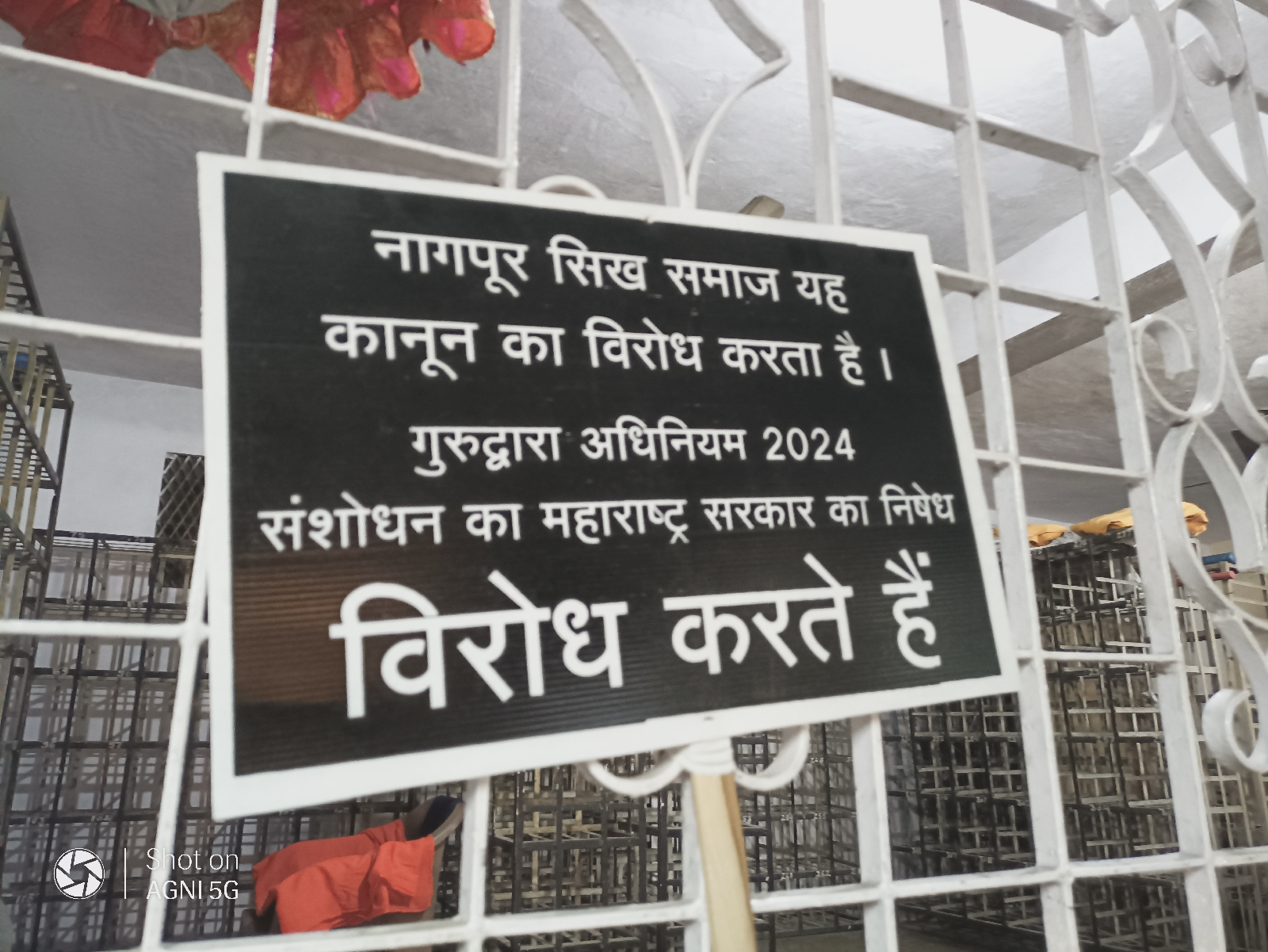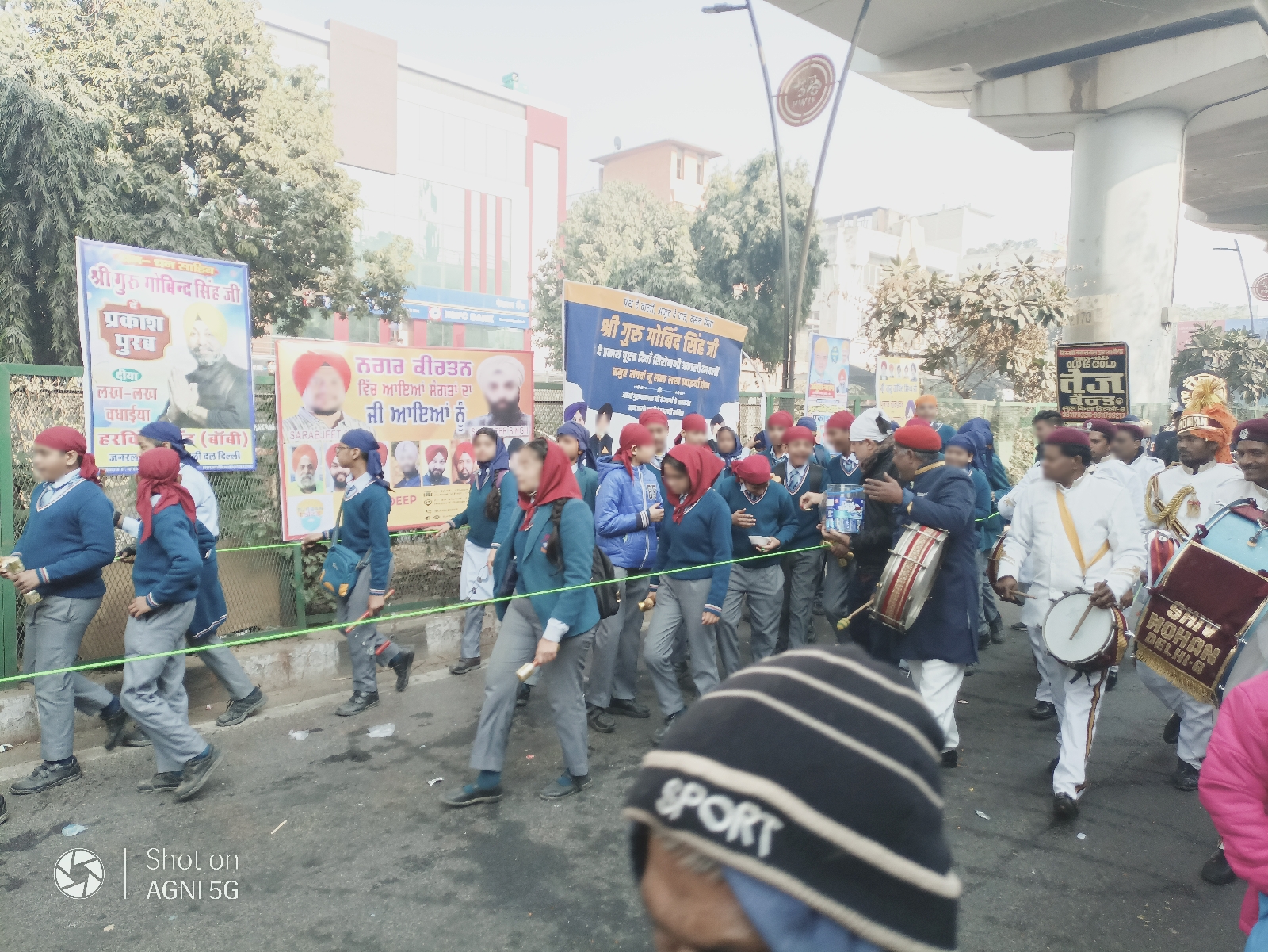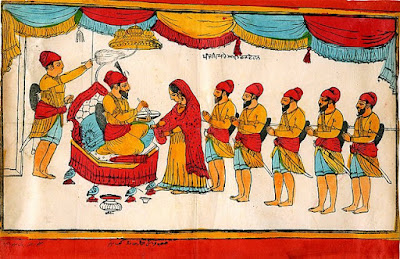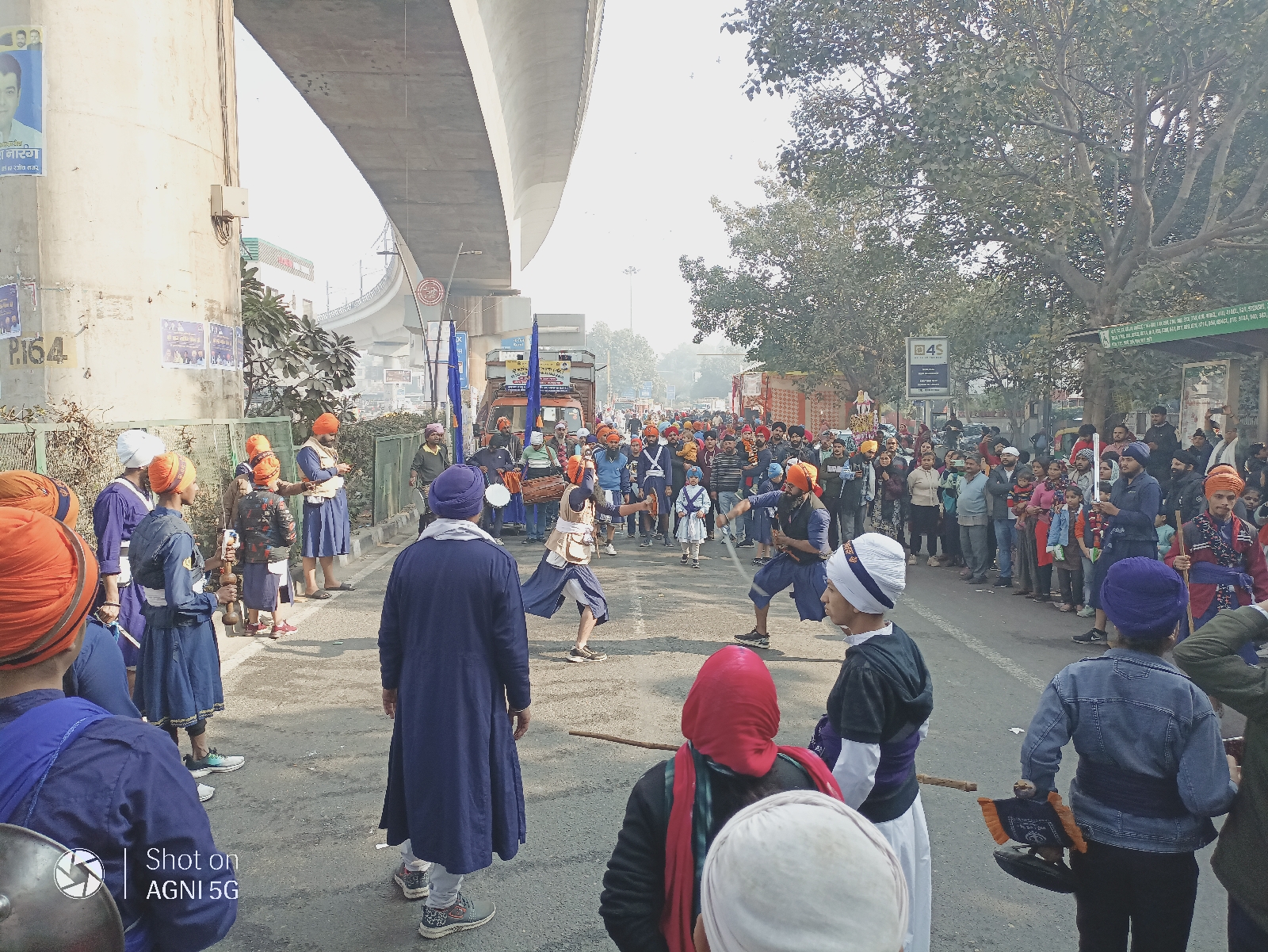Danger of 'Hindu Rashtra' for Sikhs and other minorities in a secular India.
At the outset, I am a Sikh, an Indian and do not agree to the view that there should be a Khalistan, or a Sikh homeland. This thought in itself is what needs to be disgusted upon, along with its parallels that are being created by some people who want a Hindu Nation!
But, at the same time, I am worried and concerned about the religious polarisation where one should either fit in the definition of 'Hindu' or be labelled as a non-Indian. Sikhism is an independent religion and not a sect of Hinduism or a part of Hinduism. And, the attempts made by any Hindu "cultural" organisation to end the minority status for Sikhs, Jains and Buddhists and assimilate the same into the Hindu fold is a existential suicide for Sikhs in India. In the Hindu fold, Sikhs will have to go through the vagaries of caste system, ritualistic hypocrisy and a departure from monotheism. These are the very principles that Sikhism has revolutionised against to create a new and independent religion.
The call for a Hindu Rashtra is a death bell for minorities like Sikhs. Sikhs should not come under any false impression and oppose this idea vehemently. The only India that Sikhs should look forward to and the one that was promised to them was that of a secular country as the constitution of India defines.
The preamble of the constitution of India reads as follows:
'WE, THE PEOPLE OF INDIA having solemnly resolved to constitute India into a SOVEREIGN SOCIALIST SECULAR DEMOCRATIC REPUBLIC'
The word 'Secular' is at the centre stage. The word secular, according to me means the following two things:
1. The state will not have a prescribed state religion. Examples of prescribed state religion is Pakistan which calls itself the 'Islamic Republic of Pakistan' or other places from the Islamic world.
2. The state administration will keep religion and politics separate. This also means that the administration will look at people from all the religions as equals before itself.
Apart from the above, that secular concept does not mean that the people will be atheists, but will follow religion in private lives and not in public offices.
Let us read a few excerpts from the various judgements of the Hon'ble Supreme Court of India and its interpretation of India's secularism..
It said:
India can rightly be described as the world's most heterogeneous society. It is a country with a rich heritage. Several races have converged in this sub-continent. They brought with them their own cultures, languages, religions and customs.
Further, it is well settled legal principles that secularism is a basic feature of our Constitution
In Supreme Court in S.R Bommai and Ors v. Union of India (1994) this was made clear.
The Court quoted further Pandit Nehru, the first Prime Minister as follows:
“I am convinced that the future government of free India must be secular in the sense that government will not associate itself directly with any religious faith but will give freedom to all religious functions.” Pandit Nehru in 1945"
Immediately after we attained independence, the Constituent Assembly, aware of the danger of communalism, passed the following resolution on April 3, 1948:
“Whereas it is essential for the proper functioning of democracy and growth of national unity and solidarity that communalism should be eliminated from Indian life, this Assembly is of the opinion that no communal organisation which by its constitution or by exercise of discretionary power vested in any of its officers and organs admits to, or excludes from, its membership persons on grounds of religion, race and caste, or any of them should be permitted to engage in any activities other than those essential for the bona fide religious, cultural, social and educational needs of the community, and that all steps, legislative and administrative, necessary to prevent such activities should be taken.”
Pandit Laxmikantha Mitra explained:
“By Secular State, as I understand, it is meant that the State is not going to make any discrimination whatsoever on the ground of religion or community against any person professing any particular form of religious faith. This means in essence that no particular religion in the State will receive any State patronage whatsoever. The State is not going to establish, patronize or endow any particular religion to the exclusion of or in preference to others and that no citizen in the State will have any preferential treatment or will be discriminated against simply on the ground that he professed a particular form of religion. In other words, in the affairs of the State the preferring of any particular religion will not be taken into consideration at all. This I consider to be the essence of a Secular State. At the same time we must be very careful to see that in this land of ours we do not deny to anybody the right not only to profess or practice but also propagate any particular religion.”
From the above, it is clear that the concept of a Hindu Rashtra finds no place in the way India has been defined in the Constitution of India. This is the concept I was born with. The concept that keeps minorities safely in the country which the minorities along with all others have lived and died for. But, at the same time, the attacks on the status of Sikhs are to be highlighted.
The first is the very recent incident, where the control of the board of the Sachkhand Hazur Sahib Nanded in Maharashtra was taken over by the government by unilaterally amending the 1956 act. This amendment means that out of the 17 seats, 12 will be directly appointed by the Maharashtra government. The two Sikh MPs nominated earlier will be done away with and the seats of the Shiromani Gurudwara Prabandhak Committee (the Sikh temporal body) will be reduced by half. Sikhs can imagine non Sikhs one day to be controlling the Gurudwara. This will be in violation of the daily prayer of the Sikhs where we pray that 'Sewa Sambhal of the Gurudwaras should be given to Khalsa ji'
The second is the call for abolishing the minority status for Sikhs, Jains and Buddhists by a Hindu "cultural" organisation.
The third is the propaganda machine running on social media where there is a constant mis-representation of facts to paint a picture that Sikhs are a part of Hinduism. A new term seems to be have coined, ie, 'Sanatani' Sikhs and the worst part of this narrative is that the polarised opposite of a so called 'Sanatani' Sikh is a Khalistani. The misinformation being spread is that either you are a Sikh who believes in Hinduism or you are a separatist. This is absolutely false as Sikhism is by letter and spirit a monotheistic and independent religion which opposed the evils in the prevailing Hinduism and created a new identity for itself. Further, fully practising Sikhs since very earlier times have lived and died as patriots for India and had unwavering loyalty.
In the current times, as i write, there is petition before the Supreme Court of India to delete the words 'secular' and 'socialist' from the preamble of the constitution. This is against the idea of India, as it was envisioned by the people who fought for our freedom and who gave us a secular country. It must be borne in mind that every action taken by India to do away with secular character of India or the dehumanisaton of the muslims is leading to a reaction in countries with Hindus as a minority. For the sake of these brethren, we must retain our secular character and refrain from activities which show any Indian minority in a negative light.
Sikhs must also understand the impact of throwing another minority community (read muslims) under-the-bus. By identifying ourselves as Hindu and even thinking about dehumanising other minorities, we are paving the way for our own turn next. The divisive forces will keep creating divisions and Sikhs may be next in line. As Sikhs our duty is to protect the interests of any community that is being persecuted.
We have to remember the German Lutheran pastor Martin Niemoller who said:
First they came for the socialists, and I did not speak out—
Because I was not a socialist.
Then they came for the trade unionists, and I did not speak out—
Because I was not a trade unionist.
Then they came for the Jews, and I did not speak out—
Because I was not a Jew.
Then they came for me—and there was no one left to speak for me.
The only country that Sikhs have ever recognised is a secular India. An India where all minorities are given due respect and no attempt is made towards their dehumanising, segregation or their assimilation into the majority fold. The concept of a 'Hindu Rashtra' has no place for Sikhism as an independent and free religion. It is a sort of monolithic concept which may not respect any diversity and may even lead to the persecution of Sikhs as a minority.
 |
| First they came... by Martin Niemoller |








Comments
Post a Comment
Please share your view